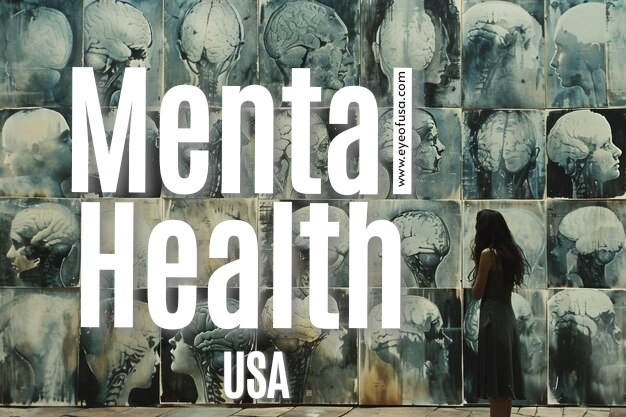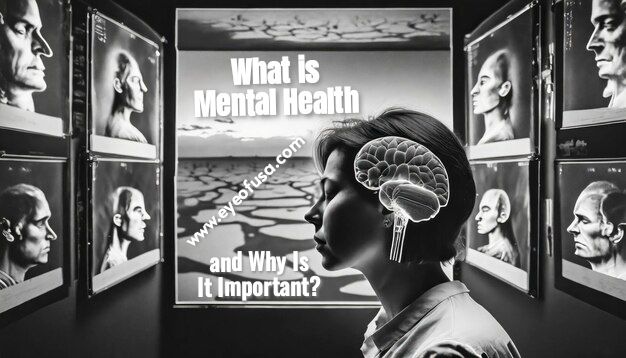Mental Health Benefits of exercise
What is the relationship between exercise and mental health?
Exercise plays a crucial role in maintaining mental health. Regular physical activity not only enhances physical well-being but also positively impacts emotional and psychological health. Engaging in exercise can lead to significant improvements in mood, reduction in anxiety, and even alleviation of depression symptoms.
How does exercise affect mental health biologically?
Biologically, exercise triggers the release of endorphins, often referred to as “feel-good” hormones. These chemicals act as natural painkillers and mood elevators. Additionally, physical activity increases serotonin levels in the brain, which helps regulate mood, sleep, and appetite. Exercise also reduces levels of stress hormones like cortisol, contributing to a more relaxed state of mind.
What are the psychological benefits of exercising?
From a psychological perspective, exercise boosts self-esteem and confidence. Achieving fitness goals, no matter how small, can lead to a sense of accomplishment. Furthermore, regular physical activity enhances cognitive function, improving concentration and mental clarity, which can help reduce feelings of stress and anxiety.
How can exercise alleviate anxiety?
Research indicates that exercise can significantly alleviate anxiety symptoms. Aerobic activities, such as running, swimming, and cycling, have been shown to be particularly effective. These activities help distract the mind and promote relaxation. Starting with just 20-30 minutes of exercise several times a week can make a noticeable difference in anxiety levels.
Can exercise help with depression?
Yes, numerous studies support the idea that exercise can serve as an effective treatment for depression. Regular physical activity can lead to improvements in mood and emotional well-being. For instance, a study published in the Journal of Clinical Psychiatry found that participants who engaged in regular physical activity reported fewer depressive symptoms compared to those who did not exercise. Activities such as brisk walking, jogging, or participating in group sports can be especially beneficial.
What mood-boosting effects does exercise have?
Exercise has a remarkable ability to boost mood and overall well-being. It increases the production of endorphins, which help create feelings of happiness and euphoria. Many people report feeling more energized and positive after a workout. Additionally, the social aspect of group exercises can enhance feelings of connection and reduce feelings of loneliness.
How does exercise improve sleep quality?
Regular exercise can significantly improve sleep quality. Physical activity helps regulate your sleep cycle, making it easier to fall asleep and stay asleep. It’s essential to note, though, that the timing of exercise can impact sleep. Engaging in moderate exercise during the day can promote better sleep, while vigorous activity close to bedtime may have the opposite effect.
What types of exercises are beneficial for mental health?
There are various types of exercises that can enhance mental health:
Aerobic Exercises: Activities like running, swimming, and cycling are great for boosting mood and reducing anxiety.
Strength Training: Lifting weights not only builds physical strength but also improves mental resilience and self-confidence.
Mind-Body Exercises: Yoga and tai chi incorporate mindfulness and relaxation techniques, making them excellent for stress reduction and emotional balance.
How can someone get started with an exercise routine?
Getting started with an exercise routine can be simple. Here are some tips:
- Set Realistic Goals: Begin with achievable goals that fit your lifestyle. Gradually increase the intensity and duration of your workouts as you become more comfortable.
- Find Activities You Enjoy: Choose exercises that you find enjoyable. Whether it’s dancing, hiking, or playing a sport, engaging in fun activities will make it easier to stick with them.
- Schedule Your Workouts: Treat your exercise time like any other important appointment. Consistency is key to reaping the mental health benefits.
What are some barriers to exercise, and how can they be overcome?
Common barriers to exercise include time constraints and lack of motivation. Here are a few strategies to overcome these challenges:
Time Management: Try to incorporate shorter, high-intensity workouts if you’re pressed for time. Even a quick 10-15 minute session can be beneficial.
Stay Motivated: Find an exercise buddy to keep you accountable, or join a group to stay engaged and inspired. Setting short-term goals can also help maintain motivation.
Conclusion
The mental health benefits of exercise are undeniable. From alleviating anxiety and depression to improving overall mood and sleep quality, regular physical activity is a powerful tool for enhancing mental well-being. Whether you’re just starting or looking to incorporate more exercise into your life, remember that every bit counts. Consider consulting a professional to create a personalized exercise plan that works for you.


